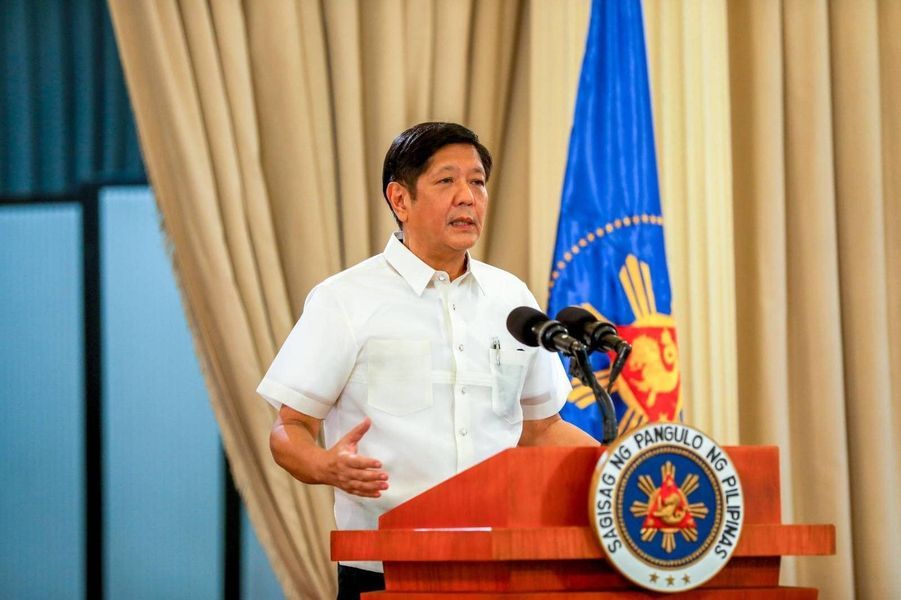Since the passing of the Local Government Code in 1991, local government units who were granted autonomy and funds to plan and prioritize their spending on services and facilities they actually needed, many, if not all, are still struggling and unable to use such powers and funds.
The full devolution is expected to be completed this year but even President Ferdinand “Bongbong” Marcos Jr. noted and coaxed the League of Municipalities recently to “not waste mandates and to use them (mandate and funds) for grand things.”
Last December 21, the President issued a set of instructions to agencies to evaluate the impact of genuine local autonomy on cities, provinces, towns and barangays and to draw up a list of basic services that LGUs can offer without draining their coffers, noted state think tank, Philippine Institute of Development Studies.
Marcos and his advisers are treading lightly on the massive undertaking to turn LGUs into self-reliant communities, as envisioned by the Code authors 32 years ago.
“That our bureaucrats are opting for more prudence than haste is an encouraging sign for the success of this decades-long endeavor. At stake, after all, is the delivery of critical services, such as health, agriculture, environmental management, local infrastructure, social welfare, and tourism,” the PIDS noted.
The study said many LGUs are poorly equipped to assume new mandates, willing but unable to absorb a larger share of national revenues to which they are entitled under the 2018 Supreme Court on the Mandanas-Garcia petition.
Internal revenue allotment
This 2024, LGUs are receiving P871.3 billion in national tax allotment, aka IRA (internal revenue allotment), higher by P50 billion than their share this year.
Such great funding comes with greater responsibility.
But as noted by Budget Secretary Amenah Pangandaman in March, some 450 LGUs were ill-prepared to take on devolved functions with inadequate skills, capacity or resources.
Nothing much has changed, noted PIDS.
The President earlier ordered NEDA to study what government could gain from full devolution under his predecessor’s EO 138, setting the stage for completion of devolution in 2024.
NEDA’s conclusion was devolution should not be “one-size-fits-all,” warning that a penniless municipality might receive more funds due to the Mandanas ruling but ironically find itself in a “poore, financial condition,” Marcos said last March.
Management of funds
The UN Development Programme in 2022 noted that the problem is not funding availability for cash-strapped LGUs but in fiscal management as it cited a “significant disparity among LGUs in technical capacity and preparedness” for implementing the Mandanas ruling.”
“The larger an LGU’s budget, the lower the rate of budget utilization,” said the UNDP report as it noted that cities and provinces on average would have about P604 million in unspent funds per year.
The PIDS study published in May 2023 agreed that the devolution policy should reflect the “heterogeneity in capacity” among LGUs, instead of imposing uniform rules for all.
Ultimately, the onus is on the government to support struggling LGUs in the devolution process until they reach their highest potential as self-governing political units.
The top imperative, always, must be to ensure that the poorest communities aren’t left behind.
The DBM said the NTA will fund 43,649 municipalities. Of the total, 82 provinces will receive P220.57 billion, 146 cities will secure P220.57 billion, 1,488 municipalities will get P326.07 billion, and 41,933 villages, P191.80 billion.
Still, local governments were asked to allocate at least 20 percent of their NTA funds for development projects.
"To help address the problem of horizontal imbalance, a fiscal equalization called the growth equity fund (GEF) was introduced, to fund basic infrastructure and other programs, projects, and activities of poor, disadvantaged, and lagging local governments, including capacity development requirements, to enable them to more effectively and efficiently implement the functions and services devolved to LGUs by relevant laws, which the PIDS said should address challenges such as unequal development, high poverty rate and discrepancies in local government fiscal capacities.
Speaking before the LMPs General Assembly in Pasay City last February, Marcos emphasized to LGUs his transformational vision: “We need to start thinking of new ways to address the problems we are facing here in the local and international economy and technology. We need to prepare for it.”
Speaker Ferdinand Martin Romualdez, who was also in the gathering, said the House is supporting LGUs with a bigger share of the annual budget.
#WeTakeAStand #OpinYon #FinancialAutonomy #PBBM #PH
